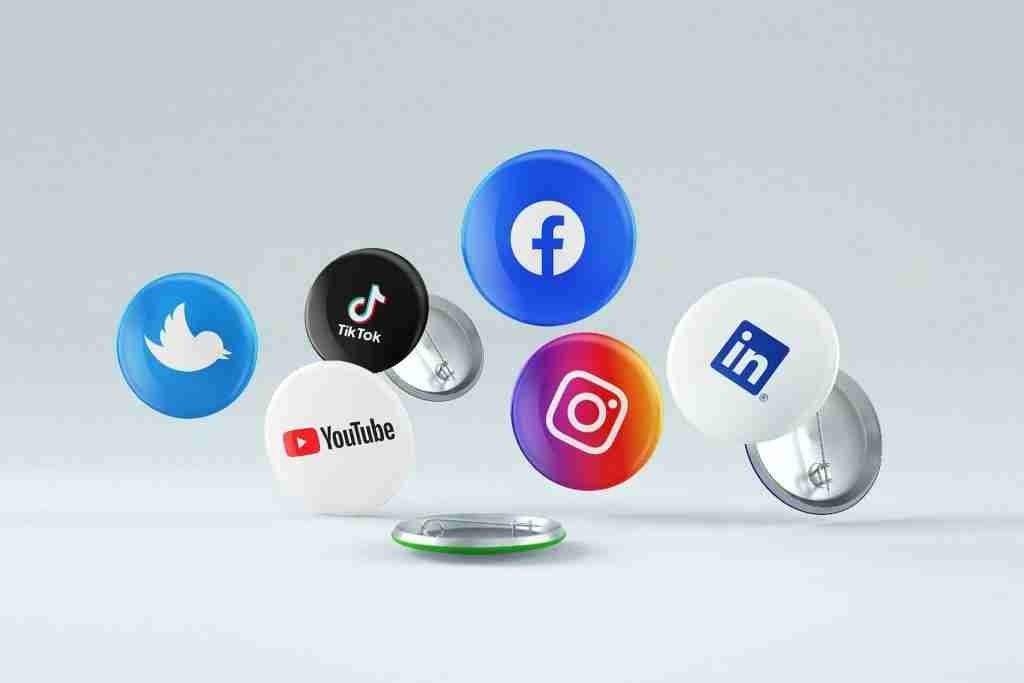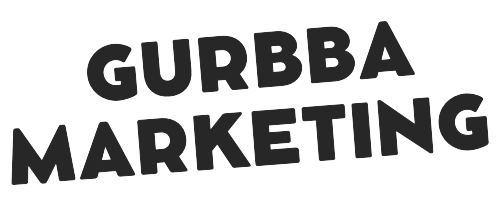Small businesses are the backbone of the American economy. In order to compete and thrive in today’s economy, it is essential for small businesses to adopt and utilize effective marketing strategies. The good news is that there are many great marketing tools available for small businesses. The following is a list of fourteen of the best marketing tools for small businesses in 2022.
3. Search engine optimization (SEO)
4. Pay-per-click advertising (PPC)
9. Online reputation management (ORM)
1. Social media
Platforms like Facebook, Twitter, and Instagram are great for small businesses to connect with current and potential customers. Posting engaging content, running ads, and holding contests are all effective marketing strategies that can be done on social media.
Some of the rising social media platforms you must use in 2022:
TikTok – It is a short-form, video-sharing app that allows users to create and share 15-second videos, on any topic.
Snapchat – It is a multimedia messaging app that offers users a variety of features, such as the ability to add filters, lenses, and bitmojis to their photos and videos.
Instagram – It is a photo and video-sharing social networking service that enables users to share content with their followers.
LinkedIn – It is a business and employment-oriented social networking service that operates via websites and mobile apps.
Reddit – It is an American social news aggregation, web content rating, and discussion website.
It’s important to choose the right platform for your business. If you’re not sure which one to use, consider conducting market research to see which platforms your target audience is using the most.

2. Email marketing
Email marketing is a great way to stay in touch with customers and promote your business at the same time. Creating a newsletter, special offers, and automated emails can help you reach a larger audience and boost sales.
There are some great email marketing platforms that can help you get started:
Mailchimp – Mailchimp is a tool that can help you grow your audience and revenue. With Mailchimp, you can send emails and automations to your subscribers with expert advice built in. Mailchimp also offers a wide range of features to help you grow your business. With Mailchimp, you can segment your subscribers into different groups, create automated emails and campaigns, track your results, and more. With Mailchimp, you can also connect your store to sell products directly from your emails. Mailchimp is a powerful tool that can help you grow your audience and revenue.
GetResponse – GetResponse is an email marketing platform that helps businesses to reach their customers and grow their sales. With GetResponse, businesses can create beautiful emails, manage their contact lists, and track their results. GetResponse also offers a wide range of features, including automation and landing pages. Plus, GetResponse integrates with a variety of other software platforms, making it easy to use in any business. GetResponse is an essential tool for any business that wants to succeed in email marketing. With its easy-to-use interface and powerful features, GetResponse can help businesses to reach more customers and grow their sales.
You can read more about email marketing in this article.

3. Search engine optimization (SEO)
SEO is all about improving your website so that it ranks higher in search engine results. This can be done by optimizing your website content, using the right keywords, and building backlinks.
These days, there is no need to hire an expensive SEO agency to do your SEO for you. There are plenty of great tools that can help you do it yourself. Here are some of the best SEO tools:
Google Search Console – This is a free tool from Google that helps you to understand how your website is performing in Google search results. With Search Console, you can see which keywords your website is ranking for, get insights into your website’s traffic, and more.
Yoast SEO – Yoast is a popular WordPress plugin that helps you to optimize your website for search engines. Yoast SEO can help you to choose the right keywords, create SEO-friendly titles and descriptions, and more.
SEMrush – SEMrush is a comprehensive SEO tool that offers features such as keyword research, competitor analysis, and more. SEMrush is a great tool for businesses of all sizes that want to improve their SEO.
You can find out more about SEO in this article.
4. Pay-per-click advertising (PPC)
PPC is a type of online advertising where businesses pay a fee for each click on their ad. This is a great way to drive traffic to your website and generate leads.
The most popular PPC platform is Google AdWords. There, you can create text ads, image ads, and even video ads and display them on Google search results and partner websites.
AdWords is a great way to reach a large audience and generate leads for your business.
5. Affiliate marketing
As a small business owner, you are always looking for ways to market your business and reach new customers. One option that you may not have considered is affiliate marketing. Affiliate marketing is a form of performance-based marketing in which you pay commission to other businesses or individuals who promote your products or services. When done correctly, affiliate marketing can be an effective way to reach new customers and grow your business. Here are a few things to keep in mind when considering affiliate marketing for your small business:
1. Define your goals. What are you hoping to achieve with your affiliate marketing campaign? Do you want to increase brand awareness, drive traffic to your website, or generate sales? Once you know what you hope to achieve, you can better select the affiliates that will help you meet your goals.
2. Select the right affiliates. Not all affiliates are created equal. When selecting affiliates, be sure to choose businesses or individuals who are relevant to your target audience and who have a good reputation. You should also consider the type of product or service that you are promoting, as this will influence the type of affiliate that will be most effective.
3. Set up tracking. In order for affiliate marketing to be successful, you need to be able to track your results. This means setting up tracking codes on your website so that you can track when a sale or lead is generated from an affiliate. Without tracking, you will not be able to tell which affiliates are performing well and which ones are not.
4. Offer incentives. In order for affiliates to promote your products or services, they need to be compensated for their efforts. This can be done by offering commissions on sales, leads, or clicks. You can also offer other incentives such as discounts, coupons, or free shipping to encourage affiliates to promote your products or services.
Don’t worry, you don’t have to do it alone. You can find plenty of affiliate marketing programs that will help you get started.
Some of the most popular affiliate marketing programs are ShareASale, ClickBank, and Commission Junction.
6. Local SEO
If you have a brick-and-mortar business, then you need to make sure that your website is optimized for local search. Local SEO is a form of SEO that helps businesses target local customers.
There are a few things that you need to do in order to optimize your website for local search:
1. Include your business name, address, and phone number (NAP) on your website.
2. Create a Google My Business page.
3. Get listed in local directories.
4. Optimize your website for local keywords.
5. Create local landing pages.
By following these tips, you can make sure that your website is optimized for local search and that you are able to reach your target market.

7. Content marketing
Content marketing is a form of marketing that focuses on creating and distributing valuable, relevant, and consistent content to attract and retain a clearly defined audience — and, ultimately, to drive profitable customer action.
Content marketing isn’t just about creating articles and blog posts. It’s also about creating eBooks, infographics, webinars, and other types of content that can help you attract leads and convert them into customers.
One of the best ways to get started with content marketing is to create a content calendar. A content calendar is a tool that helps you plan and publish your content. It can also help you track your results and measure your success over time.
8. Web design and development
Your website is one of your most important marketing tools. It’s the first thing that potential customers will see when they search for your business online. That’s why it’s important to make sure that your website is designed and developed in a way that is user-friendly, visually appealing, and informative.
If you’re not sure where to start, there are plenty of web design and development companies that can help you create a website that is tailored to your specific needs.
9. Online reputation management (ORM)
Online reputation management (ORM) is the process of monitoring, managing, and responding to online reviews and comments about your business. It’s important to keep an eye on your online reputation, as negative reviews and comments can damage your business.
There are a few things that you can do to manage your online reputation:
1. Respond to reviews and comments in a positive, professional manner.
2. Encourage satisfied customers to leave reviews and comments.
3. Monitor your online presence regularly.
4. Invest in ORM software.
10. Google My Business
Google My Business is a free tool that allows businesses to manage their online presence on Google. It’s a good idea to set up a Google My Business page for your business, as it can help you attract new customers and grow your business.
To set up a Google My Business page, you need to:
1. Go to the Google My Business website and sign in with your Google account.
2. Enter your business name and address.
3. Choose your business category.
4. Add a description of your business.
5. Add your business hours.
6. Choose a profile photo and cover photo for your page.
7. Verify your business.
Once you’ve set up your page, you can start adding photos, creating posts, and responding to reviews.
11. Paid advertising
Paid advertising is a form of marketing that involves paying for space on a website or in a search engine to promote your business. Paid advertising can be an effective way to reach your target market and grow your business.
There are a few things to keep in mind when it comes to paid advertising:
1. Set a budget for your campaign.
2. Choose the right platform for your business.
3. Create ads that are relevant and targeted to your audience.
4. Test, measure, and adjust your campaign regularly.
There are many great options for paid advertising, such as Google Ads, Facebook Ads, and LinkedIn Ads. each platform has its own strengths and weaknesses, so it’s important to choose the one that is right for your business.

12. Public relations (PR)
Public relations (PR) is the process of managing the relationships between your business and the media. It’s important to have a good relationship with the media, as they can help you get exposure for your business.
There are a few things that you can do to improve your relationship with the media:
1. Send out press releases.
2. Respond to media inquiries in a timely manner.
3. Build relationships with journalists and bloggers.
4. Pitch story ideas to the media.
13. Event marketing
Event marketing is a form of marketing that involves creating and hosting events to promote your business. Events can be a great way to generate buzz, attract new customers, and grow your business.
There are a few things to keep in mind when it comes to event marketing:
1. Choose the right type of event for your business.
2. Plan and promote your event effectively.
3. Make sure your event is well-organized and runs smoothly.
4. Follow up with attendees after the event.
Not all events must be grandiose. If you’re on a tight budget, there are plenty of low-cost event ideas that can still be effective.
For example ,you could host a Webinar, Twitter chat, Google Hangout, Podcast interview, Facebook Live session and more.
14. Influencers Marketing
Influencer marketing is a form of marketing that involves working with people who have influence over your target market. Influencers can help you reach a larger audience and promote your brand.
There are a few things to keep in mind when it comes to influencer marketing:
1. Find influencers who are relevant to your business – There are greater platforms to locate and research influencers such as Socialbook, Hootsuite, Upfluence and more.
2. Build relationships with influencers.
3. Create content that is interesting and useful for your target market.
4. Promote your content on the influencer’s channels.
5. Measure the results of your campaign.
Conclusion:
There are many different marketing strategies that you can use to grow your business. The best way to find the right strategy for your business is to experiment and see what works best for you.
Don’t be afraid to try new things, and always be willing to adjust your strategies as you learn more about your target market. With a little trial and error, you’ll be able to find the perfect marketing mix for your business.
